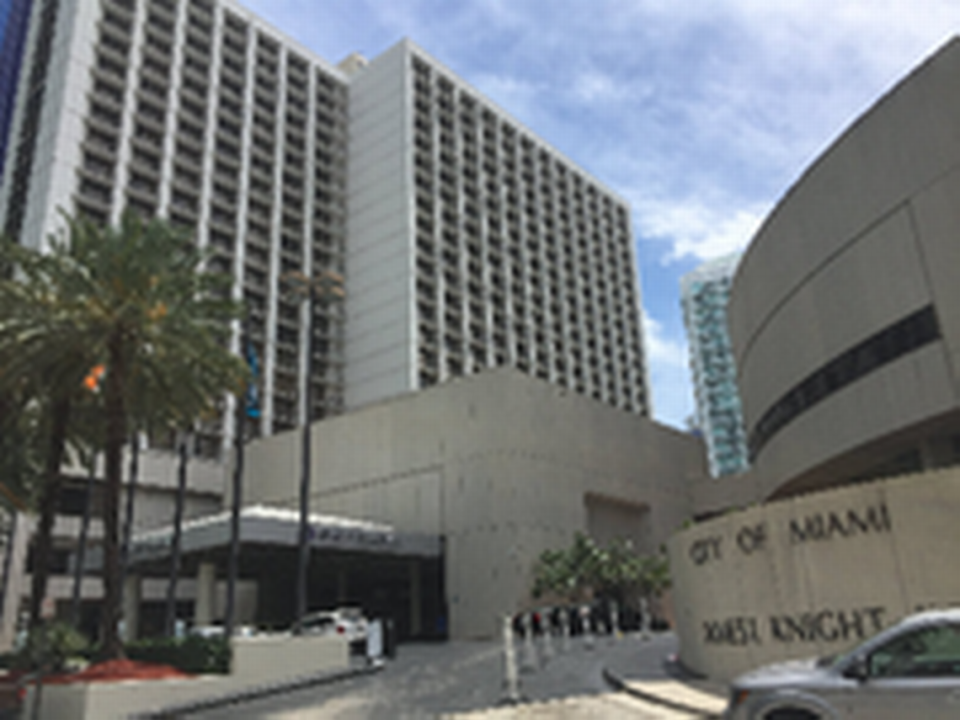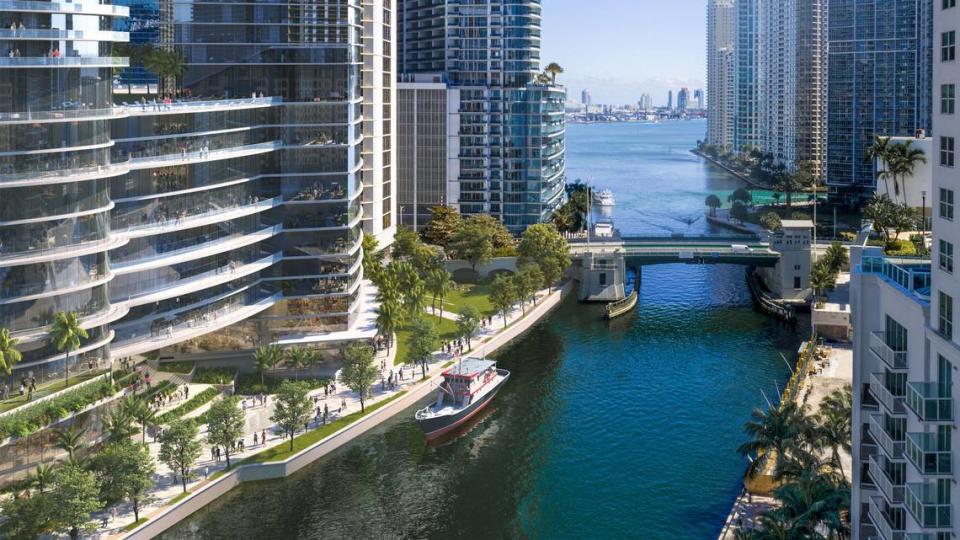Downtown Miami Hyatt and Knight Center win key vote to clear path for redevelopment
Hyatt Hotels Corp. has cleared a major hurdle in the path to redevelop its downtown Regency hotel and the James L. Knight Center, a 40-year-old complex on city-owned land near the mouth of the Miami River.
Miami commissioners last week unanimously approved a 99-year lease that will allow Hyatt and its partners, including developer Gencom and Arquitectonica, to replace the existing buildings with a three-tower complex that will include hotel rooms, apartments and meeting space, a project called Miami Riverbridge. Developers estimated the privately financed redevelopment of the property at 400 SE Second Ave., will cost about $1.5 billion. The development team said construction plans will be finalized over the next year.
Hyatt has leased the property since 1979 under an agreement that was set to expire in 2027. The hotelier has long sought to renew the lease, which required a referendum. After multiple false starts over the years, voters authorized city administrators in November to negotiate a deal on the project with 64% approval. After months of talks, commissioners approved the lease Thursday.
“I’m very pleasantly surprised by the quickness and the professionalism that was used in developing this lease,” said Commissioner Alex Díaz de la Portilla. “The city administration, the city manager, the city attorney and the applicants have done a fantastic job.”
Read more: Hyatt overhaul campaign hires a former Miami commissioner once jailed for fraud
Developers plan to build 615 hotel rooms, 1,500 market-rate apartments and about 190,000 square feet of meeting space that will replace the 4,500-seat auditorium that typically hosts concerts and graduation ceremonies. A “skybridge” with a restaurant is planned to connect two of the three towers.
Under the agreement, Hyatt is expected to pay a minimum annual rent of $2.5 million, with possible increases based on the development’s gross revenue. The developers are also required to upgrade 480 feet of the public riverfront promenade on the property, and to pay the city $25 million to be used on affordable housing initiatives, a payment that is due once the residential or hotel portions of the project can be occupied.
In a statement, Commissioner Sabina Covo praised the public benefits in the deal, particularly the housing funding.
“It will now be up to my colleagues on the dais to determine how that money is divided,” she said.
The developers also committed to renting 15 apartments at below-market rates, paying $1.5 million to benefit the historic buildings in the adjacent Fort Dallas Park, and hosting minority-owned businesses in at least 20% of a planned food hall area. At least one business from each of the city’s five districts will be included in the food hall.

In a statement, Hyatt and Gencom touted the project’s plans to improve downtown Miami’s riverfront, building housing and increased meeting space.
“The Miami City Commission’s unanimous vote in favor of Hyatt and Gencom’s land lease agreement sets into motion the transformational Miami Riverbridge development in Downtown Miami,” reads the statement. “Now that the lease has been approved, we look forward to finalizing construction plans with the City over the coming year.”
The Hyatt/Gencom team is also funding a study to see if the nearby Interstate 95 off-ramp can be extended to Biscayne Boulevard as a way to relieve frequent traffic jams in the area.


